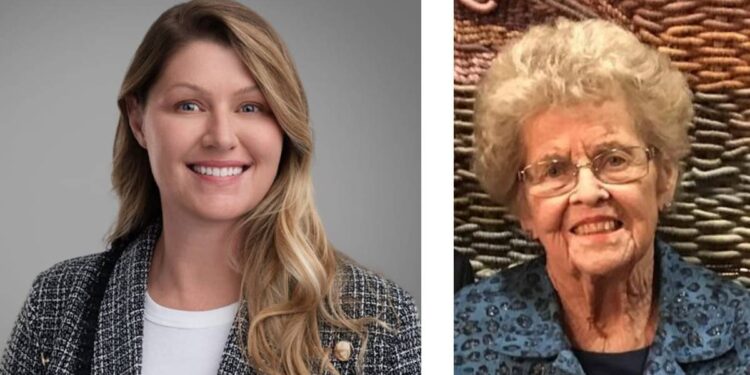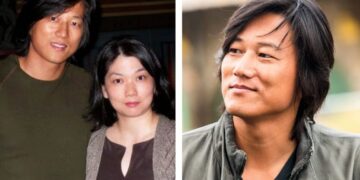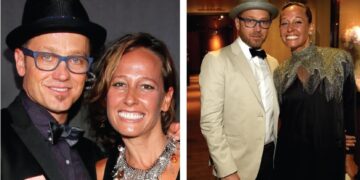In the realm of American literature, education, and culture, certain names have made an indelible mark yet remain surprisingly under-discussed in mainstream narratives. Katherine Sanborn is one such figure whose contributions have subtly influenced literary circles, educational practices, and public speaking forums of her time. Though not as widely known as some of her contemporaries, Sanborn’s work as an educator, writer, and lecturer established her as a noteworthy intellectual of the late 19th and early 20th centuries. In this comprehensive exploration, we delve deep into the life, career, and enduring impact of Katherine Sanborn, shedding light on her achievements, philosophy, and the legacy that continues to inspire educators and writers today.
Quick Bio
| Detail | Description |
| Name | Katherine Sanborn |
| Nationality | American |
| Profession | Psychiatrist |
| Marital Status | Married |
| Husband | Phil Hellmuth (Professional Poker Player) |
| Gender | Female |
| Sexual Orientation | Straight |
| Employer | Stanford University |
| Residence | Palo Alto, California |
| Children | Phillip Hellmuth III, Nicholas Hellmuth |
Early Life and Educational Foundations of Katherine Sanborn
Born in 1839, Katherine Abbott Sanborn was destined to grow up amidst an intellectually stimulating environment. She was the daughter of Dr. Edwin David Sanborn, a professor at Dartmouth College, and this familial connection to academia laid the groundwork for her educational journey. Growing up in a household where scholarly discussions were commonplace, Sanborn developed a passion for learning and literature from a young age. This nurturing atmosphere encouraged her to pursue higher education—a rare feat for women at that time.
Sanborn graduated from Mount Holyoke Female Seminary, known today as Mount Holyoke College, an institution dedicated to advancing women’s education. This experience not only honed her intellectual abilities but also positioned her as part of a pioneering generation of educated women who challenged societal expectations. Katherine Sanborn’s formative years reflect the intersection of privilege, opportunity, and an insatiable curiosity for the world of ideas, setting the stage for a prolific career in both teaching and writing.
Katherine Sanborn’s Notable Teaching Career
Teaching was not merely a profession for Katherine Sanborn; it was a calling. She began her teaching career at Mary Institute in St. Louis, Missouri, and later returned to her roots to teach at Dartmouth College. This was a significant achievement, considering that women educators in male-dominated institutions were an anomaly during that period. Sanborn’s reputation as a dedicated and engaging teacher grew rapidly, attracting admiration from students and colleagues alike.
One of her most significant contributions to education was her innovative approach to teaching literature and composition. Unlike the rigid and prescriptive methods commonly used, Sanborn emphasized creativity, critical thinking, and the appreciation of literary nuances. She advocated for teaching strategies that connected literature to everyday life, encouraging students to view reading and writing not as mere academic exercises but as essential tools for understanding the human experience. This progressive outlook on education left a lasting impact on her students and paved the way for more holistic pedagogical methods.
Literary Contributions and Published Works
Apart from her distinguished career in education, Katherine Sanborn was also a prolific writer. She authored several books, essays, and articles that showcased her wit, literary flair, and keen observations on society. One of her most popular works, “Adopting an Abandoned Farm,” offers a humorous and insightful look into rural life and the challenges of rejuvenating neglected property. This book not only entertained readers but also provided a commentary on rural American life, blending personal anecdotes with broader social reflections.
Sanborn’s writings often carried a tone of gentle satire and cultural critique, reflecting her sharp intellect and observational prowess. She had a unique ability to weave humor with serious commentary, making her work accessible yet thought-provoking. Her literary output extended to essays on etiquette, social customs, and the roles of women, subjects that resonated deeply during a time when societal norms were being questioned and redefined.
Public Speaking and Lecturing: A Trailblazing Woman on the Podium

In addition to her written works, Katherine Sanborn was an accomplished public speaker. She was among the early female lecturers who successfully carved out a space for women on the public speaking circuit. At a time when public oratory was predominantly male, Sanborn’s presence on stage was both groundbreaking and inspiring. She gave lectures on various topics, ranging from literature and social issues to humor and education, captivating audiences with her eloquence and engaging storytelling.
Sanborn’s lectures were celebrated for their depth, clarity, and subtle humor. She managed to bridge the gap between intellectual discourse and popular appeal, making complex subjects relatable to her listeners. Through her public engagements, Sanborn not only educated but also empowered her audiences, especially women, encouraging them to pursue education and self-expression without hesitation.
Katherine Sanborn’s Advocacy for Women in Education and Literature
Katherine Sanborn was not just a passive observer of her time; she was an active advocate for women’s participation in education, literature, and public life. In an era where women’s roles were largely confined to domestic spheres, Sanborn’s career itself was a testament to the possibilities that education could unlock for women. She often used her platform—whether in classrooms, books, or lecture halls—to challenge gender stereotypes and advocate for intellectual equality.
Her involvement with institutions that promoted women’s education further underscores her commitment to this cause. Sanborn believed that education was a fundamental right and a critical tool for empowering women to contribute meaningfully to society. This progressive stance made her a quiet yet influential figure in the broader movement for women’s rights, even if she was not overtly political.
The Personal Side of Katherine Sanborn
While much of the public’s knowledge about Katherine Sanborn revolves around her professional achievements, insights into her personal life reveal a woman of varied interests and quiet resilience. She lived much of her life in New Hampshire, deeply connected to the land and its rhythms. Her experience with rural living, chronicled in works like “Adopting an Abandoned Farm,” highlights her adaptability and appreciation for nature, simplicity, and hard work.
Sanborn was known for her wit, independence, and a certain understated charisma that endeared her to friends, students, and readers. Though she never married, her life was far from solitary. She cultivated meaningful relationships through her teaching, writing, and public speaking, all of which brought her into contact with diverse people and ideas.
The Cultural and Historical Context of Sanborn’s Work
Understanding Katherine Sanborn’s legacy requires situating her within the broader cultural and historical context of her time. The late 19th century was a period of intense social change in America, marked by industrialization, urbanization, and the burgeoning women’s suffrage movement. Intellectuals and educators like Sanborn navigated these transformations by contributing to discussions about education reform, gender roles, and cultural identity.
Sanborn’s work reflects the tensions and opportunities of this era. Her humorous yet critical perspectives on rural life, education, and social customs provide a window into the complexities of American society during a time of rapid evolution. In this sense, her writings and lectures not only entertained but also served as cultural artifacts that captured the spirit of her age.
The Lasting Impact and Legacy of Katherine Sanborn
Though Katherine Sanborn may not be a household name today, her contributions have left an enduring legacy in the fields of education, literature, and public speaking. She paved the way for future generations of women educators and writers, demonstrating that intellect, wit, and perseverance could overcome societal barriers.
Modern educators and literary scholars continue to find value in her teaching philosophies, which emphasized creativity, critical engagement, and the joy of learning. Her ability to seamlessly blend humor with intellectual rigor set a precedent for making education both enlightening and enjoyable. In the realm of literature, her works remain a testament to the power of observational writing and cultural commentary.
Rediscovering Katherine Sanborn Today
In today’s world, where discussions about gender equality, education reform, and cultural identity remain as relevant as ever, revisiting the life and work of Katherine Sanborn offers valuable insights. She exemplifies how one can make a significant impact without necessarily seeking fame or political power. Through her teaching, writing, and public speaking, Sanborn contributed to shaping the intellectual landscape of her time and inspired many to follow in her footsteps.
Rediscovering figures like Katherine Sanborn enriches our understanding of history, reminding us that progress is often built on the quiet yet persistent efforts of individuals who dared to think differently. As we continue to celebrate trailblazing women from the past, Sanborn’s story serves as both a lesson and an inspiration for those seeking to make their mark in education, literature, or any field of human endeavor.
Conclusion
The story of Katherine Sanborn is one of intellect, dedication, and quiet revolution. While history may not have granted her the widespread recognition she deserves, her contributions to education, literature, and public discourse remain invaluable. As we look back on her life, we are reminded of the power of knowledge, the importance of critical thinking, and the enduring impact one person can have through passion and perseverance. Whether as an educator, a writer, or a speaker, Sanborn exemplified the ideals of curiosity, creativity, and courage—traits that continue to inspire to this day.
Frequently Asked Questions (FAQ’s)
1. Who was Katherine Sanborn?
- Katherine Sanborn was an American educator, writer, and lecturer known for her contributions to literature, teaching, and public speaking during the late 19th and early 20th centuries.
2. What is Katherine Sanborn famous for?
- She is best known for her humorous book “Adopting an Abandoned Farm” and her role as an innovative teacher and lecturer who advocated for creative education and women’s intellectual advancement.
3. Did Katherine Sanborn have any notable influences?
- Sanborn was influenced by her father, a Dartmouth College professor, and the broader educational and cultural movements of her time, which emphasized women’s education and social progress.
4. What subjects did Katherine Sanborn write about?
- Her writings covered a variety of topics, including rural life, social etiquette, women’s roles, and cultural commentary, often infused with humor and keen observation.
5. Why is Katherine Sanborn important today?
- Sanborn’s legacy lives on through her contributions to educational philosophy and literature, serving as an early example of a woman breaking barriers in academia and public discourse.


















